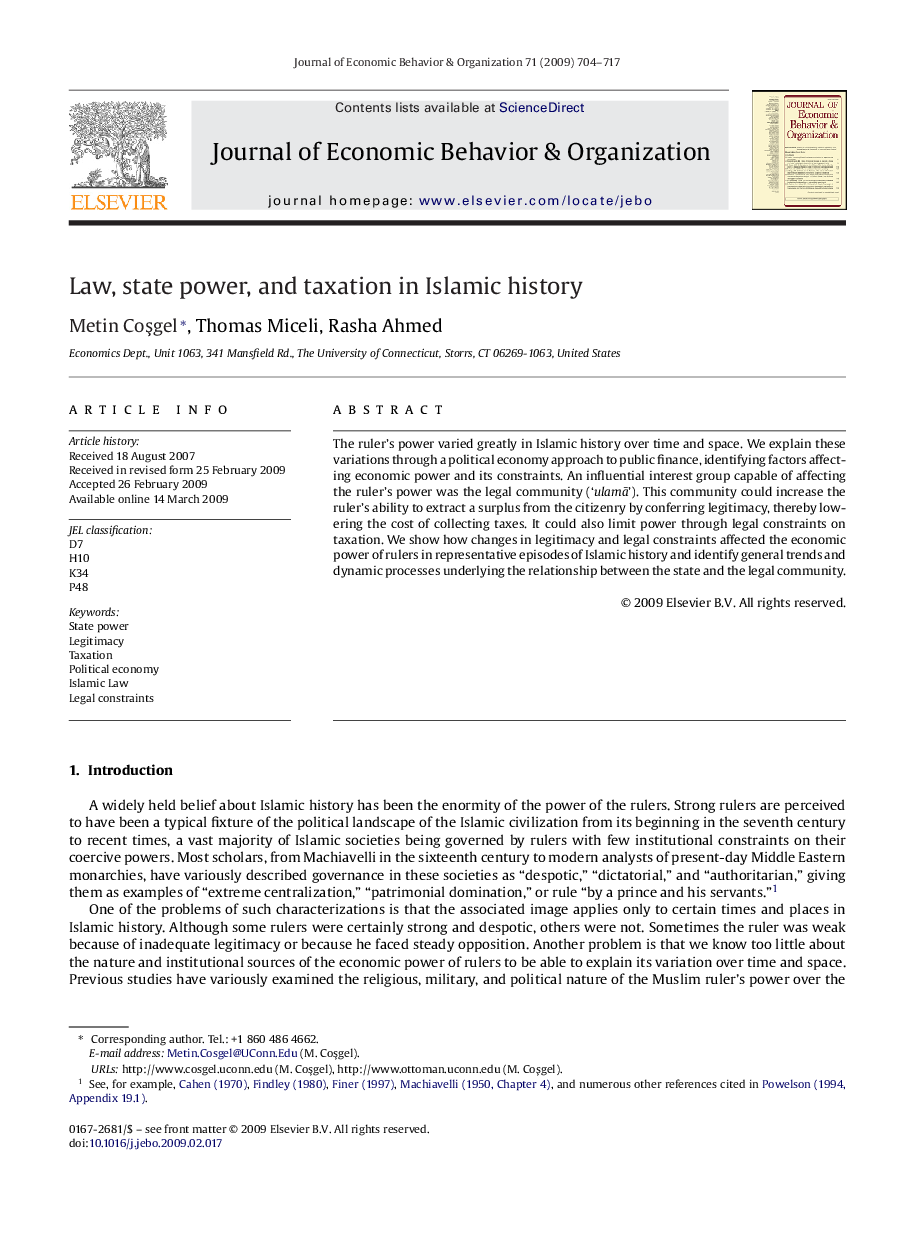| Article ID | Journal | Published Year | Pages | File Type |
|---|---|---|---|---|
| 884305 | Journal of Economic Behavior & Organization | 2009 | 14 Pages |
The ruler's power varied greatly in Islamic history over time and space. We explain these variations through a political economy approach to public finance, identifying factors affecting economic power and its constraints. An influential interest group capable of affecting the ruler's power was the legal community (‘ulamā’). This community could increase the ruler's ability to extract a surplus from the citizenry by conferring legitimacy, thereby lowering the cost of collecting taxes. It could also limit power through legal constraints on taxation. We show how changes in legitimacy and legal constraints affected the economic power of rulers in representative episodes of Islamic history and identify general trends and dynamic processes underlying the relationship between the state and the legal community.
